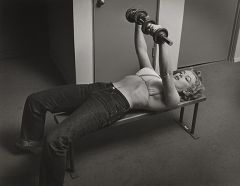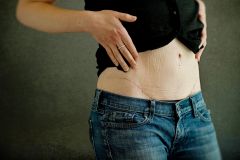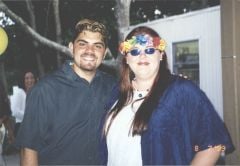

strongcoffey
Gastric Bypass Patients-
Content Count
19 -
Joined
-
Last visited
About strongcoffey
-
Rank
Novice
About Me
-
Gender
Female
Recent Profile Visitors
2,073 profile views
-
Temeka Silva-Perez started following strongcoffey
-
 stella2528 reacted to a post in a topic:
The 6 Things You Can Do To Minimize Loose Skin After Weight Loss
stella2528 reacted to a post in a topic:
The 6 Things You Can Do To Minimize Loose Skin After Weight Loss
-
 mngreeneyes reacted to a post in a topic:
The 6 Things You Can Do To Minimize Loose Skin After Weight Loss
mngreeneyes reacted to a post in a topic:
The 6 Things You Can Do To Minimize Loose Skin After Weight Loss
-
 SuzieNewbury7 reacted to a post in a topic:
The 6 Things You Can Do To Minimize Loose Skin After Weight Loss
SuzieNewbury7 reacted to a post in a topic:
The 6 Things You Can Do To Minimize Loose Skin After Weight Loss
-
 ellie123 reacted to a post in a topic:
The 6 Things You Can Do To Minimize Loose Skin After Weight Loss
ellie123 reacted to a post in a topic:
The 6 Things You Can Do To Minimize Loose Skin After Weight Loss
-
 Alex Brecher reacted to a post in a topic:
The 6 Things You Can Do To Minimize Loose Skin After Weight Loss
Alex Brecher reacted to a post in a topic:
The 6 Things You Can Do To Minimize Loose Skin After Weight Loss
-
 Cervidae reacted to a post in a topic:
The 6 Things You Can Do To Minimize Loose Skin After Weight Loss
Cervidae reacted to a post in a topic:
The 6 Things You Can Do To Minimize Loose Skin After Weight Loss
-
 BonnieJo reacted to a post in a topic:
The 6 Things You Can Do To Minimize Loose Skin After Weight Loss
BonnieJo reacted to a post in a topic:
The 6 Things You Can Do To Minimize Loose Skin After Weight Loss
-
 KeepCalm reacted to a post in a topic:
The 6 Things You Can Do To Minimize Loose Skin After Weight Loss
KeepCalm reacted to a post in a topic:
The 6 Things You Can Do To Minimize Loose Skin After Weight Loss
-
 strongcoffey reacted to a post in a topic:
The 6 Things You Can Do To Minimize Loose Skin After Weight Loss
strongcoffey reacted to a post in a topic:
The 6 Things You Can Do To Minimize Loose Skin After Weight Loss
-
 strongcoffey reacted to a post in a topic:
The 6 Things You Can Do To Minimize Loose Skin After Weight Loss
strongcoffey reacted to a post in a topic:
The 6 Things You Can Do To Minimize Loose Skin After Weight Loss
-
 CowgirlJane reacted to a post in a topic:
The 6 Things You Can Do To Minimize Loose Skin After Weight Loss
CowgirlJane reacted to a post in a topic:
The 6 Things You Can Do To Minimize Loose Skin After Weight Loss
-
 Inner Surfer Girl reacted to a post in a topic:
The 6 Things You Can Do To Minimize Loose Skin After Weight Loss
Inner Surfer Girl reacted to a post in a topic:
The 6 Things You Can Do To Minimize Loose Skin After Weight Loss
-
 strongcoffey reacted to a post in a topic:
The 6 Things You Can Do To Minimize Loose Skin After Weight Loss
strongcoffey reacted to a post in a topic:
The 6 Things You Can Do To Minimize Loose Skin After Weight Loss
-
 strongcoffey reacted to a post in a topic:
The 6 Things You Can Do To Minimize Loose Skin After Weight Loss
strongcoffey reacted to a post in a topic:
The 6 Things You Can Do To Minimize Loose Skin After Weight Loss
-
 strongcoffey reacted to a post in a topic:
The 6 Things You Can Do To Minimize Loose Skin After Weight Loss
strongcoffey reacted to a post in a topic:
The 6 Things You Can Do To Minimize Loose Skin After Weight Loss
-


The 6 Things You Can Do To Minimize Loose Skin After Weight Loss
strongcoffey posted a topic in Weight Loss Surgery Magazine
Formerly obese personal trainer Kelly Coffey talks turkey about excess skin, and what she did - and continues to do - about hers. Dear Coffey - I’m thinking about having weight loss surgery, but I’m not too keen on living the rest of my life with extra, loose skin. What can I do to keep that from happening? Sincerely, Cecelia in CA Hey there, Cecelia - Congratulations on taking the reigns and exploring your options. I hope you find a good, honest surgeon who can help you figure out if weight loss surgery might be a strong choice for you. As with everything concerning our bodies, the topic of loose skin generates a whole lot of hype. The truth is there are exactly six things you can do to minimize excess, loose skin after weight loss - whether or not you have WLS. The first three are preventative, and apply to the period before weight is lost. The last three apply to the post-weight loss period. First, prevention. 1- Don’t wait. Ask any aesthetician or midwife and they’ll tell you: the younger we are, the more our skin can bounce back from a stretch. If you would be more comfortable weighing less and you’re afraid of having excess skin, the younger you are when you lose weight, the better. But don’t waste precious energy wishing you had lost weight in your early 20s. You have today, and today is where your power is. If there are choices you want to make in service to your health and happiness (whether or not they would result in weight loss) today is the day to make them. 2- Avoid the loss/gain cycle. Imagine how a once-inflated balloon looks and feels after you let the air out. Now imagine the same balloon after 4, 6, or 10 deflations. Much like the balloon, the more times we lose weight and gain it back, the looser our skin gets. Again, now is not the time to berate yourself for all those “successful” stints in Weight Watchers that ended with you gaining the weight back and then some - it happens to all of us, myself included. Today is the day to get yourself stronger, more sustainable tools - tools that support long-term weight loss and minimize the probability of gaining it back. These tools exist, and you can get an introduction to them in my free online workshop, Why We Sabotage Ourselves (with Food) (and What We Can Do About It). 3- Keep weight gain to a minimum. The heavier we get, the more our skin stretches, and the less likely it is to bounce back after we lose weight. You can’t do anything now about your weight history. Feeling badly about it or judging yourself for it will only make you want to numb out (if you’re anything like me, probably with food). If you are reading this at the heaviest weight you’ve ever been, then this is the heaviest you ever need to be. If weight loss is something you want to do for you, your skin will thank you for making caring choices toward that goal starting now. That covers the things you can do to minimize excess skin before you lose weight. Now let’s look at what you can do once the weight is gone. 4- Build muscle. Contrary to popular belief, strength training does not “tone” or “tighten” the skin. Skin elasticity has nothing - NOTHING - to do with exercise. But strength training gives loose skin something hot and firm to lie over - namely biceps, triceps, quads and abdominal muscles. Lots of folks - especially women - shy away from strength-training, or think it’s better to use smaller weights and do more reps. This is a myth that keeps women from ever seeing the results they want and deserve. Assuming you’re being safe and reasonable, the heavier and harder and you train, the more muscle you build, and the better you’re likely to feel about how your skin looks. 5- Have surgery. Even if you’re young, even if you lose weight just once, and even if you strength train like a boss, there’s still a limit to the impact we can have on excess skin after weight-loss. Some consider having skin removal surgery. If this is something you’re thinking about, be warned: Words like “lift,” “nip,” and “tuck” are misleading. Skin removal surgery is no joke. I know that because I had it. The surgery hurts like hell, and can put you out of commision for weeks or months. Also, the medication usually prescribed to manage the post-op pain is highly addictive. If you’ve got a compulsive / addictive relationship to food, you’re way more likely to get hooked on painkillers than someone who doesn’t struggle with the compulsive overeating. 6- Love yourself. Loving your body isn’t going to tighten, lift, or shape your skin after you lose weight, but it can minimize the negative impact that living with loose skin might have on you otherwise. Love is action. Love means making consistently caring choices because you deserve to be cared for, no matter what you weigh or how your body looks. If you struggle to make consistently caring choices, whether you’re pre-op, post-op, or no-op, you’re not alone, and there are practical, usable tools to help you get there. Where will you fall on the loose skin spectrum? You can’t really know unless and until you lose weight. I yo-yo dieted for 10+ years, maxing out at 307 pounds. I had Roux-en Y in my mid-twenties and lost over half my body weight. Eventually I started strength training and became a personal fitness trainer. Two years later, I opted to have abdominoplasty (aka a tummy tuck), because the excess skin on my stomach was beyond anything that could be mediated or improved with exercise. The surgery hurt like a son-of-a-b***h and had me out of work for a month. I’ve made peace with the loose skin on the rest of my body. The muscle I’ve built with regular strength training helps a lot. So has treating my body with care one choice at a time for over a decade. It’s given me self-respect and peace that make my batwings an insignificant afterthought. Loose skin post-weight loss is inevitable for those of us who are or have been obese. But if you would be healthier or more comfortable in your body weighing less, don’t let the fear of loose skin keep you from doing what you need to do to get there. Our bodies will never look like other people’s bodies, and that’s OK. Our bodies tell our stories, and our stories are our strength. All good things, Kelly Coffey PS: Whether or not you decide to have surgery - and even if you've already had it by the time you read this - you can use the tool that's helped me to turn my life and my health around. To learn it, click here to grab a seat in my free online workshop, "Why We Sabotage Ourselves (with Food) (and What We Can Do About It)" -
strongcoffey started following The 6 Things You Can Do To Minimize Loose Skin After Weight Loss
-
-

The 6 Things You Can Do To Minimize Loose Skin After Weight Loss
strongcoffey posted a magazine article in Body Image
Dear Coffey - I’m thinking about having weight loss surgery, but I’m not too keen on living the rest of my life with extra, loose skin. What can I do to keep that from happening? Sincerely, Cecelia in CA Hey there, Cecelia - Congratulations on taking the reigns and exploring your options. I hope you find a good, honest surgeon who can help you figure out if weight loss surgery might be a strong choice for you. As with everything concerning our bodies, the topic of loose skin generates a whole lot of hype. The truth is there are exactly six things you can do to minimize excess, loose skin after weight loss - whether or not you have WLS. The first three are preventative, and apply to the period before weight is lost. The last three apply to the post-weight loss period. First, prevention. 1- Don’t wait. Ask any aesthetician or midwife and they’ll tell you: the younger we are, the more our skin can bounce back from a stretch. If you would be more comfortable weighing less and you’re afraid of having excess skin, the younger you are when you lose weight, the better. But don’t waste precious energy wishing you had lost weight in your early 20s. You have today, and today is where your power is. If there are choices you want to make in service to your health and happiness (whether or not they would result in weight loss) today is the day to make them. 2- Avoid the loss/gain cycle. Imagine how a once-inflated balloon looks and feels after you let the air out. Now imagine the same balloon after 4, 6, or 10 deflations. Much like the balloon, the more times we lose weight and gain it back, the looser our skin gets. Again, now is not the time to berate yourself for all those “successful” stints in Weight Watchers that ended with you gaining the weight back and then some - it happens to all of us, myself included. Today is the day to get yourself stronger, more sustainable tools - tools that support long-term weight loss and minimize the probability of gaining it back. These tools exist, and you can get an introduction to them in my free online workshop, Why We Sabotage Ourselves (with Food) (and What We Can Do About It). 3- Keep weight gain to a minimum. The heavier we get, the more our skin stretches, and the less likely it is to bounce back after we lose weight. You can’t do anything now about your weight history. Feeling badly about it or judging yourself for it will only make you want to numb out (if you’re anything like me, probably with food). If you are reading this at the heaviest weight you’ve ever been, then this is the heaviest you ever need to be. If weight loss is something you want to do for you, your skin will thank you for making caring choices toward that goal starting now. That covers the things you can do to minimize excess skin before you lose weight. Now let’s look at what you can do once the weight is gone. 4- Build muscle. Contrary to popular belief, strength training does not “tone” or “tighten” the skin. Skin elasticity has nothing - NOTHING - to do with exercise. But strength training gives loose skin something hot and firm to lie over - namely biceps, triceps, quads and abdominal muscles. Lots of folks - especially women - shy away from strength-training, or think it’s better to use smaller weights and do more reps. This is a myth that keeps women from ever seeing the results they want and deserve. Assuming you’re being safe and reasonable, the heavier and harder and you train, the more muscle you build, and the better you’re likely to feel about how your skin looks. 5- Have surgery. Even if you’re young, even if you lose weight just once, and even if you strength train like a boss, there’s still a limit to the impact we can have on excess skin after weight-loss. Some consider having skin removal surgery. If this is something you’re thinking about, be warned: Words like “lift,” “nip,” and “tuck” are misleading. Skin removal surgery is no joke. I know that because I had it. The surgery hurts like hell, and can put you out of commision for weeks or months. Also, the medication usually prescribed to manage the post-op pain is highly addictive. If you’ve got a compulsive / addictive relationship to food, you’re way more likely to get hooked on painkillers than someone who doesn’t struggle with the compulsive overeating. 6- Love yourself. Loving your body isn’t going to tighten, lift, or shape your skin after you lose weight, but it can minimize the negative impact that living with loose skin might have on you otherwise. Love is action. Love means making consistently caring choices because you deserve to be cared for, no matter what you weigh or how your body looks. If you struggle to make consistently caring choices, whether you’re pre-op, post-op, or no-op, you’re not alone, and there are practical, usable tools to help you get there. Where will you fall on the loose skin spectrum? You can’t really know unless and until you lose weight. I yo-yo dieted for 10+ years, maxing out at 307 pounds. I had Roux-en Y in my mid-twenties and lost over half my body weight. Eventually I started strength training and became a personal fitness trainer. Two years later, I opted to have abdominoplasty (aka a tummy tuck), because the excess skin on my stomach was beyond anything that could be mediated or improved with exercise. The surgery hurt like a son-of-a-b***h and had me out of work for a month. I’ve made peace with the loose skin on the rest of my body. The muscle I’ve built with regular strength training helps a lot. So has treating my body with care one choice at a time for over a decade. It’s given me self-respect and peace that make my batwings an insignificant afterthought. Loose skin post-weight loss is inevitable for those of us who are or have been obese. But if you would be healthier or more comfortable in your body weighing less, don’t let the fear of loose skin keep you from doing what you need to do to get there. Our bodies will never look like other people’s bodies, and that’s OK. Our bodies tell our stories, and our stories are our strength. All good things, Kelly Coffey PS: Whether or not you decide to have surgery - and even if you've already had it by the time you read this - you can use the tool that's helped me to turn my life and my health around. To learn it, click here to grab a seat in my free online workshop, "Why We Sabotage Ourselves (with Food) (and What We Can Do About It)" -
strongcoffey started following Tori Loukas
-
Self-sabotage may still live inside us, but it's not US. We’re alive, and most of us want to stay that way. Fundamentally, underneath all of the noise and the preferences and the prejudices we just want to live as comfortably as possible for as long as possible. We want to be able to play in the world with the stuff we like and the people we love doing the things we want to be doing for as many years as we can. For most of us, this is our deepest truth. It makes sense that our fundamental drive, then, is to act in ways that keep us strong and healthy. It's this drive that inspired most of us to have - or explore the possibility of having - weight loss surgery. Post-op, many of us realize that we still have something in us that wants to keep us from getting or staying strong and healthy. We still hear the voice of self-sabotage. When faced with the choice to follow through with or disregard a commitment we’ve made to ourselves and our health, it still chimes in with “Oh, screw it,” or “It’s not worth it,” or “Maybe later.” If you’re anything like me, it takes every chance it gets to slap me with “Exercise? Eating well? Who exactly do you think you’re kidding?” Sabotaging efforts to take better care of ourselves has always worked against us, but after surgery, turning a blind eye to our nutrition plan, skimping on sleep, failing to take supplements, and / or not following our doctor's orders can have way more serious - and more immediately life-threatening, consequences. The voice urging us to disregard our post-op commitments is not our voice, and the sooner we allow ourselves to recognize that voice as a separate entity, the better. I call my self-sabotaging voice the Beast, and when I remember that it’s the beat’s voice urging me to quit, or not even try, I can listen critically instead of just going with the flow, and doing (or not doing) whatever it suggests. Seeing the beast as separate from me gives me some space to remember my truth - I want to live, and live well - and to act accordingly, which means eating well, eating mindfully, and taking care of my body in every other way that I can. One of my commitments is to work out every day, because it makes me feel breathless and alive and sexy and it ramps up my energy (I have two toddlers, and I can use all the energy I can get). After a long morning of working out my personal training clients, I’m tired, and the thought bubbles up that “I need a break.” I’ve been in this situation enough times to know that taking that “break” (which usually involves sitting, mindlessly snacking, and losing an hour to Facebook) will suck the life right out of me and set me up for a crappy, lethargic evening. After years of practice, the moment this kind of self-sabotaging, undermining thought pops up, my radar goes off: “That thought isn’t coming from me.” I know it’s the Beast, and I know that listening to it will yield me the exact opposite of what I want most, which is to feel healthy and vibrant and fully engaged in my life. And it’s that little mental shift that helps me walk into the gym, even after a long workday. Odds are there’s a beast living in your head, too. I suggest giving it a name - you’re welcome to use the same one I do. When self-sabotaging and self-harming ideas bubble to the surface, practice labeling them with the name you’ve chosen. “I’m too tired to workout.” That’s probably your beast. “One cigarette won’t hurt.” Most definitely your beast. “Eh, it won't matter if I eat cake and soda while I'm on vacation - life is short!” It just may be short, or at least you may wish it were while you're in the midst of a horrible dumping episode. Surgery junk food after gastric bypass? Yup, you guessed it: Beast. I work every day to disempower the beast in me and to give my clients the tools to disempower theirs. Today, my Beast tells me not to bother blogging because nothing I write will ever be good enough. It tells me not to bother giving people tools to end self-sabotage, like I’ll be doing in a free, live webinar on April 1 at 8:30 PM Eastern (CLICK HERE to claim your seat). It tells me I’m a fraud for trying to live a healthy life, nevermind trying to teach other people how to do it, too. Because I default to self-harm and self sabotage, I need to keep my deep desires - to be comfortable in my body, to be available to my children, and to be a resource to women like me - front and center in my mind. When a thought comes up - to do or not to do something, anything - I ask myself “Is this in line with what I want most?” If it is, that’s me - that's my voice. When it’s not, that’s the beast. Try it for yourself - you’ll be amazed how easy it is to figure out who’s talking. Another way that I keep the beast from controlling me is to share the fact that it exists with you, so thanks for listening, and for joining me on April 1. If you relate to my story, and you’re lugging around your own self-sabotaging demon, I empathize. I'm living proof that women like us can get a handle on self-sabotage, and live the lives we want: comfortable, strong, and free. Please join me for "Of Course You Can: 3 Essential Strategies to End Self-Sabotage" Details: FREE & LIVE, April 1, 2015 at 8:30 PM Eastern; webinar To claim your seat, visit: http://webinarjam.net/webinar/go/14421/b8b8bcf46d
-

To Disarm Self-Sabotage, Give it a Name
strongcoffey posted a magazine article in Fitness & Exercise
We’re alive, and most of us want to stay that way. Fundamentally, underneath all of the noise and the preferences and the prejudices we just want to live as comfortably as possible for as long as possible. We want to be able to play in the world with the stuff we like and the people we love doing the things we want to be doing for as many years as we can. For most of us, this is our deepest truth. It makes sense that our fundamental drive, then, is to act in ways that keep us strong and healthy. It's this drive that inspired most of us to have - or explore the possibility of having - weight loss surgery. Post-op, many of us realize that we still have something in us that wants to keep us from getting or staying strong and healthy. We still hear the voice of self-sabotage. When faced with the choice to follow through with or disregard a commitment we’ve made to ourselves and our health, it still chimes in with “Oh, screw it,” or “It’s not worth it,” or “Maybe later.” If you’re anything like me, it takes every chance it gets to slap me with “Exercise? Eating well? Who exactly do you think you’re kidding?” Sabotaging efforts to take better care of ourselves has always worked against us, but after surgery, turning a blind eye to our nutrition plan, skimping on sleep, failing to take supplements, and / or not following our doctor's orders can have way more serious - and more immediately life-threatening, consequences. The voice urging us to disregard our post-op commitments is not our voice, and the sooner we allow ourselves to recognize that voice as a separate entity, the better. I call my self-sabotaging voice the Beast, and when I remember that it’s the beat’s voice urging me to quit, or not even try, I can listen critically instead of just going with the flow, and doing (or not doing) whatever it suggests. Seeing the beast as separate from me gives me some space to remember my truth - I want to live, and live well - and to act accordingly, which means eating well, eating mindfully, and taking care of my body in every other way that I can. One of my commitments is to work out every day, because it makes me feel breathless and alive and sexy and it ramps up my energy (I have two toddlers, and I can use all the energy I can get). After a long morning of working out my personal training clients, I’m tired, and the thought bubbles up that “I need a break.” I’ve been in this situation enough times to know that taking that “break” (which usually involves sitting, mindlessly snacking, and losing an hour to Facebook) will suck the life right out of me and set me up for a crappy, lethargic evening. After years of practice, the moment this kind of self-sabotaging, undermining thought pops up, my radar goes off: “That thought isn’t coming from me.” I know it’s the Beast, and I know that listening to it will yield me the exact opposite of what I want most, which is to feel healthy and vibrant and fully engaged in my life. And it’s that little mental shift that helps me walk into the gym, even after a long workday. Odds are there’s a beast living in your head, too. I suggest giving it a name - you’re welcome to use the same one I do. When self-sabotaging and self-harming ideas bubble to the surface, practice labeling them with the name you’ve chosen. “I’m too tired to workout.” That’s probably your beast. “One cigarette won’t hurt.” Most definitely your beast. “Eh, it won't matter if I eat cake and soda while I'm on vacation - life is short!” It just may be short, or at least you may wish it were while you're in the midst of a horrible dumping episode. Surgery junk food after gastric bypass? Yup, you guessed it: Beast. I work every day to disempower the beast in me and to give my clients the tools to disempower theirs. Today, my Beast tells me not to bother blogging because nothing I write will ever be good enough. It tells me not to bother giving people tools to end self-sabotage, like I’ll be doing in a free, live webinar on April 1 at 8:30 PM Eastern (CLICK HERE to claim your seat). It tells me I’m a fraud for trying to live a healthy life, nevermind trying to teach other people how to do it, too. Because I default to self-harm and self sabotage, I need to keep my deep desires - to be comfortable in my body, to be available to my children, and to be a resource to women like me - front and center in my mind. When a thought comes up - to do or not to do something, anything - I ask myself “Is this in line with what I want most?” If it is, that’s me - that's my voice. When it’s not, that’s the beast. Try it for yourself - you’ll be amazed how easy it is to figure out who’s talking. Another way that I keep the beast from controlling me is to share the fact that it exists with you, so thanks for listening, and for joining me on April 1. If you relate to my story, and you’re lugging around your own self-sabotaging demon, I empathize. I'm living proof that women like us can get a handle on self-sabotage, and live the lives we want: comfortable, strong, and free. Please join me for "Of Course You Can: 3 Essential Strategies to End Self-Sabotage" Details: FREE & LIVE, April 1, 2015 at 8:30 PM Eastern; webinar To claim your seat, visit: http://webinarjam.net/webinar/go/14421/b8b8bcf46d -


'No!': A Daughter Reacts to Mom's Decision to Have WLS
strongcoffey replied to strongcoffey's topic in Weight Loss Surgery Magazine
With pictures: http://www.strongcoffey.com/index.php/no-a-daughter-reacts-to-moms-decision-to-have-weight-loss-surgery/ -
-
-
-
-
-


'No!': A Daughter Reacts to Mom's Decision to Have WLS
strongcoffey posted a topic in Weight Loss Surgery Magazine
Mom taught me the greatest lesson I’ve ever learned: Self-acceptance and the desire to change are not mutually exclusive propositions I hit 300 pounds by the age of 18. Dating back to early childhood, all my efforts to diet had failed, and always left me heavier than I’d been when I started. In my 20s, I decided to accept my body - fat and all. No more diets. No more wasting time feeling bad about my size. From now on, I was gonna work on loving the body I had. If I remember correctly, about 10 minutes later, my mother broke the news: “Sweetheart, I’m having weight loss surgery.” A chorus of ‘No!’ started singing in my head. Every reason why surgery was a bad idea tried to elbow its way to the stage. “It’s dangerous!” “It’s expensive!” “It’s a cop out!” “It’s society that needs to change, not you!” “You’re beautiful just as you are!” “It’s their problem, not yours!” “NO!” My mom had gone through periods of consistently eating nourishing foods in nourishing ways, exercising every day, and sleeping well. And as a result, she knew what it felt like to be more comfortable in her own skin, and to move through the world without the burden of 150+-pounds of excess fat. I, on the other hand, was young, and had always been overweight and out of shape, but I wasn’t gonna let that stop me from believing I knew what was best for my mother. I was an idealistic feminist college student who’d just stumbled upon the solution to suffering: loving myself just exactly as I was. To my mind, by choosing to have surgery, my mom was being a narrow-minded, self-hating fool. “Mom, you need to love yourself! Don’t let society tell you how your body should look!” “I do love myself," she said. "That’s why I’m doing this. I want to be comfortable. I want to be able to do things I’m not comfortable doing at this weight. And I want to be alive and healthy for when you have babies.” I could hardly believe the depth of her ignorance. “There’s a support group for post-ops that’s open to the public. Please come with me,” she said. Fine, I thought. There was bound to be some post-op there who’d almost died, or someone that couldn’t swallow...All I needed was one flesh and blood person to base my argument on, and then my mother would have no choice but to come to her senses. “I’ll come on one condition.” “What’s that?” “I want you to listen to everything that gets said in that meeting. I’m not going if you’re gonna ignore the truth.” “It’s a deal.” My mom drove us to the meeting in Englewood, NJ. There was a facilitator, and just under 50 people in the room, mostly women in their 40s and 50s. Some had had surgery already, some were scheduled to have it, and some were just thinking about it. I sat against the wall in silent protest. While waiting for the meeting to start, I invented a life and a personality for the facilitator, compared her to me, and decided I was superior. She started with some house-keepy details and then launched right in. “Welcome, everyone,” she said. “First we’ll hear check-ins from the post-ops, and then, if there’s still time, we’ll take some questions.” The post-ops shared personal stories ranging from the straightforward: ‘I had surgery, I lost a lot of weight, I feel better, and here I am,’ to the gripping: ‘I had surgery, had a bunch of post-surgical complications, and here’s what life has looked like since.’ Everyone’s story was a little different, but one thing was universal: these people hadn’t gone under the knife to get hot; they’d undergone surgery because they wanted to live as fully as they could in the time that remained, and for them, that meant being a healthier weight. Dieting had failed them, like it fails most of us, but surgery felt like it might be the answer. The facilitator called a break. I watched as my mother got up and introduced herself to a post-op who’d shared that losing weight meant getting her blood pressure, cholesterol, and type 2 diabetes under control. The woman was older, she was not meeting any popular standards of beauty, and appeared positively vibrant. I hadn’t realized how down my mom looked until she started to brighten up talking to this woman. The moderator called us back. People were smiling and whispering, quietly exchanging cards and phone numbers. She thanked everyone for their shares, and opened up the floor, as promised. “Does anyone have any questions for the post-ops?” Now was my chance. I raised my hand. “How many of you wish you hadn’t had surgery?” Not a single hand went up. Maybe they’re embarrassed, I thought. Surely the ones who’d had complications felt foolish for having had surgery, but maybe peer pressure was keeping them quiet. I needed to ask a better question, get them to talk about the danger. “Uh...can I ask one more?” the facilitator nodded. “What’s the biggest, scariest risk to having surgery?” There was a tiny pause. My brain fired off all kinds of answers: Vitamin deficiencies! Pain! Death! “Judgement.” What? “Being criticized.” Wait, what? “When people think surgery’s the easy way out, or a sign of weakness, or just a stupid idea, and they never stop letting you know." Huh. According to a roomful of WLS post-ops, having to deal with my criticism might be the biggest, scariest risk my mom would face if she had surgery. Compared to daily, holier-than-thou judgement, even post-surgical complications might seem trite and manageable. My mom do go ahead with her surgery. In under a year, I watched her regain much of the health and livelihood she’d lost. A little over a year later, I went to the same surgeon. Ever since I opted to have gastric bypass surgery myself in 2003, I can tell you that the folks at that meeting were right. I’ve worked my tail off to get well, to get an honest handle on my relationship to food, and to create a body I love. I became a personal trainer, coach, and educator to help others do the same. As a wellness professional, I’ve been judged for having had surgery in much the same way I was judged for being the fattest kid on the playground, except now, it’s often by other fitness “professionals.” I’ve since apologized to my mother for the grief I tried to give her when she first started exploring surgery as an option. And I’ve thanked her for sparking the greatest lesson I’ve ever learned - the lesson that I’ve dedicated my career to teaching to others: Self-acceptance and the desire to change are not mutually exclusive propositions - they can co-exist. In my experience, and that of countless clients and students, the only way to make lasting, sustainable, positive change is to begin from a place of love. -

'No!': A Daughter Reacts to Mom's Decision to Have WLS
strongcoffey posted a magazine article in Healthy Living
I hit 300 pounds by the age of 18. Dating back to early childhood, all my efforts to diet had failed, and always left me heavier than I’d been when I started. In my 20s, I decided to accept my body - fat and all. No more diets. No more wasting time feeling bad about my size. From now on, I was gonna work on loving the body I had. If I remember correctly, about 10 minutes later, my mother broke the news: “Sweetheart, I’m having weight loss surgery.” A chorus of ‘No!’ started singing in my head. Every reason why surgery was a bad idea tried to elbow its way to the stage. “It’s dangerous!” “It’s expensive!” “It’s a cop out!” “It’s society that needs to change, not you!” “You’re beautiful just as you are!” “It’s their problem, not yours!” “NO!” My mom had gone through periods of consistently eating nourishing foods in nourishing ways, exercising every day, and sleeping well. And as a result, she knew what it felt like to be more comfortable in her own skin, and to move through the world without the burden of 150+-pounds of excess fat. I, on the other hand, was young, and had always been overweight and out of shape, but I wasn’t gonna let that stop me from believing I knew what was best for my mother. I was an idealistic feminist college student who’d just stumbled upon the solution to suffering: loving myself just exactly as I was. To my mind, by choosing to have surgery, my mom was being a narrow-minded, self-hating fool. “Mom, you need to love yourself! Don’t let society tell you how your body should look!” “I do love myself," she said. "That’s why I’m doing this. I want to be comfortable. I want to be able to do things I’m not comfortable doing at this weight. And I want to be alive and healthy for when you have babies.” I could hardly believe the depth of her ignorance. “There’s a support group for post-ops that’s open to the public. Please come with me,” she said. Fine, I thought. There was bound to be some post-op there who’d almost died, or someone that couldn’t swallow...All I needed was one flesh and blood person to base my argument on, and then my mother would have no choice but to come to her senses. “I’ll come on one condition.” “What’s that?” “I want you to listen to everything that gets said in that meeting. I’m not going if you’re gonna ignore the truth.” “It’s a deal.” My mom drove us to the meeting in Englewood, NJ. There was a facilitator, and just under 50 people in the room, mostly women in their 40s and 50s. Some had had surgery already, some were scheduled to have it, and some were just thinking about it. I sat against the wall in silent protest. While waiting for the meeting to start, I invented a life and a personality for the facilitator, compared her to me, and decided I was superior. She started with some house-keepy details and then launched right in. “Welcome, everyone,” she said. “First we’ll hear check-ins from the post-ops, and then, if there’s still time, we’ll take some questions.” The post-ops shared personal stories ranging from the straightforward: ‘I had surgery, I lost a lot of weight, I feel better, and here I am,’ to the gripping: ‘I had surgery, had a bunch of post-surgical complications, and here’s what life has looked like since.’ Everyone’s story was a little different, but one thing was universal: these people hadn’t gone under the knife to get hot; they’d undergone surgery because they wanted to live as fully as they could in the time that remained, and for them, that meant being a healthier weight. Dieting had failed them, like it fails most of us, but surgery felt like it might be the answer. The facilitator called a break. I watched as my mother got up and introduced herself to a post-op who’d shared that losing weight meant getting her blood pressure, cholesterol, and type 2 diabetes under control. The woman was older, she was not meeting any popular standards of beauty, and appeared positively vibrant. I hadn’t realized how down my mom looked until she started to brighten up talking to this woman. The moderator called us back. People were smiling and whispering, quietly exchanging cards and phone numbers. She thanked everyone for their shares, and opened up the floor, as promised. “Does anyone have any questions for the post-ops?” Now was my chance. I raised my hand. “How many of you wish you hadn’t had surgery?” Not a single hand went up. Maybe they’re embarrassed, I thought. Surely the ones who’d had complications felt foolish for having had surgery, but maybe peer pressure was keeping them quiet. I needed to ask a better question, get them to talk about the danger. “Uh...can I ask one more?” the facilitator nodded. “What’s the biggest, scariest risk to having surgery?” There was a tiny pause. My brain fired off all kinds of answers: Vitamin deficiencies! Pain! Death! “Judgement.” What? “Being criticized.” Wait, what? “When people think surgery’s the easy way out, or a sign of weakness, or just a stupid idea, and they never stop letting you know." Huh. According to a roomful of WLS post-ops, having to deal with my criticism might be the biggest, scariest risk my mom would face if she had surgery. Compared to daily, holier-than-thou judgement, even post-surgical complications might seem trite and manageable. My mom do go ahead with her surgery. In under a year, I watched her regain much of the health and livelihood she’d lost. A little over a year later, I went to the same surgeon. Ever since I opted to have gastric bypass surgery myself in 2003, I can tell you that the folks at that meeting were right. I’ve worked my tail off to get well, to get an honest handle on my relationship to food, and to create a body I love. I became a personal trainer, coach, and educator to help others do the same. As a wellness professional, I’ve been judged for having had surgery in much the same way I was judged for being the fattest kid on the playground, except now, it’s often by other fitness “professionals.” I’ve since apologized to my mother for the grief I tried to give her when she first started exploring surgery as an option. And I’ve thanked her for sparking the greatest lesson I’ve ever learned - the lesson that I’ve dedicated my career to teaching to others: Self-acceptance and the desire to change are not mutually exclusive propositions - they can co-exist. In my experience, and that of countless clients and students, the only way to make lasting, sustainable, positive change is to begin from a place of love.










